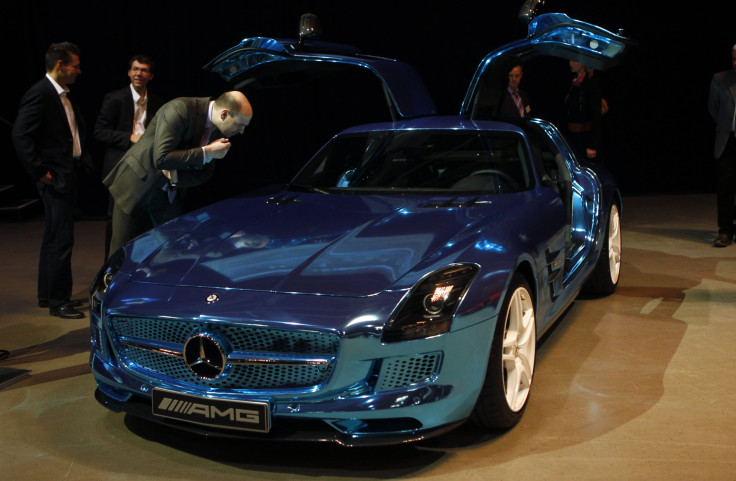Luxury Car Maker Mercedes-Benz Had A Good Month In Europe (Yes, Europe)

Daimler AG (FRA:DAI) said Monday sales of its Mercedes-Benz luxury brand broke an all-time record in April with an 11.7 percent increase in sales compared to the same month last year thanks to double-digit gains in Asia and Europe.
Yes, that’s right: Europe’s luxury auto consumers are helping Mercedes break a sales record this year while the plebeians have reeled back so far on auto purchases that plants are being closed.
Just look at the unit sales figures for April released by the Stuttgart, Germany-based automaker: U.K., up 14.5 percent; France, up 19.8 percent; Belgium, up 11.1 percent; and Germany, up 6.3 percent.
For Western Europe as a whole, Mercedes-Benz sales broke an all-time record of 11.8 percent to 56,988 units. The company broke a global sales record for March the previous month, with Europe gaining 2.5 percent. February sales slumped, but the company performed better than most. In January, the company saw sales in Western Europe rise 2.5 percent.
For the first quarter of the year, sales of Benzes rocketed 25.1 percent in Belgium and 13.3 percent in Great Britain.
The two other leading luxury automakers also reported decent growth in Western Europe.
Audi AG (FRA:NSU), based in Ingolstadt, Germany, said last week it recorded growth in the European market in the first quarter, with a strong 9.7 percent increase in the U.K. compared to last year and even a slight uptick in Spain despite declines in demand from other countries most affected by the sovereign debt crises.
European sales volume for Bayerische Motoren Werke AG (FRA:BMW) also increased in the first quarter 3.1 percent to 207,243 units.
"The automobile industry is developing into a two-class society," Peter Fuss, an auto-industry focused partner at GSA Ernst & Young, told the Wall Street Journal in April. "While some companies are achieving record earnings, others are lurching along on flat tires."
“The contrast between the luxury end and the mass-market part of the European car business is striking,” reported The Economist. “BMW has recently been making operating profits of about €4,000 ($5,200) on each car it sells whereas Opel-Vauxhall, the European arm of GM, has been losing about €1,500 per car.”
Super luxury models are seeing two-digit growth in Europe, too. Bentley sales are up 60 percent in the U.K. this year, according to The Guardian, even as overall economic growth is expected to be flat, pushing down the total auto sector as a whole. (Deliveries of the super luxury sedan is are up 26 percent worldwide.)
Of course, an auto industry isn’t built on the sales to the sliver of consumers that have enough income to be buying six-figures sedans in a flailing economy. What the sales figures do suggest is that while most European consumers have been hit hard by the sovereign debt crisis, the region’s top income earners are still heading to showrooms and kicking tires on the world’s priciest wheels.
© Copyright IBTimes 2024. All rights reserved.












